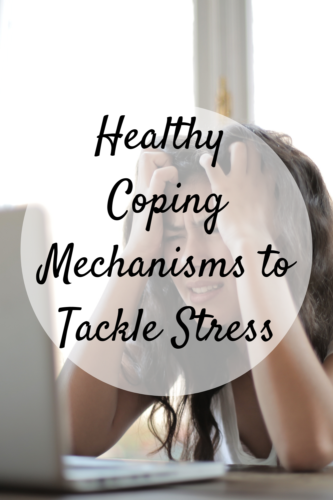
Modern life is fast, stressy, and can leave you feeling more than a little worse for wear. As we grew up we might not have been presented with the opportunity to put healthy coping mechanisms in place.
In fact – we might not even know what healthy coping mechanisms look like either.
Anxiety, depression, low self-esteem, trauma responses and so much more are more prevalent than ever.
While we all have some form of stress, there is a difference between a slightly worrisome day and full-blown stress. Just as there is a difference between feeling slightly sad, and having depression.
Stress for the most part is a completely natural reaction to many situations. Stress and anxiety trigger our fight or flight responses, and in a world where we are no longer running from predators – it leaves us a little lost.
Now stress for humans comes from speaking in public, taking exams, work calls, performing, driving, and daily life.
An often overlooked stress reaction, and one that causes anger from other people is the ‘freeze’ reaction. The person who has this when under stress or pressure will freeze, be unable to communicate, or react. We often refer to this as a deer in the headlights. While many people assume they are just pretending the situation isn’t happening, it’s quite the contrary.
What are coping mechanisms?
Coping mechanisms come in many forms, some are positive, and some are negative. According to Folkman and Lazarus, coping mechanisms are no fixed rules or behaviors but rather a human response to a dangerous circumstance or environment.
With one stressor event circumstance, a person may utilize one coping style, another, and entirely another method.
So there are no rules when it comes to coping mechanisms, but some can have a positive impact and others that don’t. They are most often a personal choice, but as we know, some coping mechanisms are short-term fixes that last to long-term damage.
A harmful coping mechanism might look like this:
- Substance abuse or drinking
- Working too much on purpose
- Isolating from others
- Over or under eating to exert control
- Not sleeping or sleeping too much
Often alcohol and drugs can be used to get some sleep during difficult situations, but they can quickly become a crutch and something that Sunshine Behavioural Health can help with.
Healthy coping mechanisms
Healthy coping mechanisms are support structures that don’t hurt you or others around you, and they go some way to making you feel better.
Comedy
Sometimes humor is one of the fastest ways to turn a situation in its head. And while it might not feel funny at the moment – it might be hilarious later on. Look for the funny side of the situation – there usually always is one, even in the bleakest moments.
List it
If you have a big decision to make, and it’s giving you anxiety and stress – then you can make a trusty list. List some pros and cons about the choice that you have to make. We know what the right decision is for us most of the time, but we just need time to think it over.
Skilling up
Channel any pent-up energy into learning something new. If you are getting nervous because you feel like you don’t know enough about a particular subject – learn about it if you are worried about job interviews, study. There are so many reasons you study, and putting a positive outcome at an upsetting time is perfect.
Journal
If you don’t love writing, then maybe this one isn’t for you. But if you do, writing can be one of the healthiest coping mechanisms. You get to sit down and work out all of your thoughts and feelings. You can explore them on a deeper level in complete safety. And while many people envisage sitting at a desk scribbling in a leather-bound journal, others prefer to type it up on a computer.
Music
If you have some songs that inspire you to start singing along the very top of your lungs or ones that make you cry, then use that. Many people hold their emotions in, which is unhealthy. A gentle nudge from your favorite songs can help you release tension. Or at the very least, allow you to relax.
Support
One of the healthiest coping mechanisms is to allow yourself the time to speak to a professional who can help you work through your stress and worries. They can help you build a framework that will make a massive difference in how you feel.
Choosing proper healthy coping skills is critical to your health and well-being, regardless of your pressures. It may take some time to figure out what works for you, but once you do, you’ll feel like a completely different person.
As you are working on your mental health, you must help your children, too; read more: 10 Ways to Support the Mental Health of Your Children.





Leave a Reply